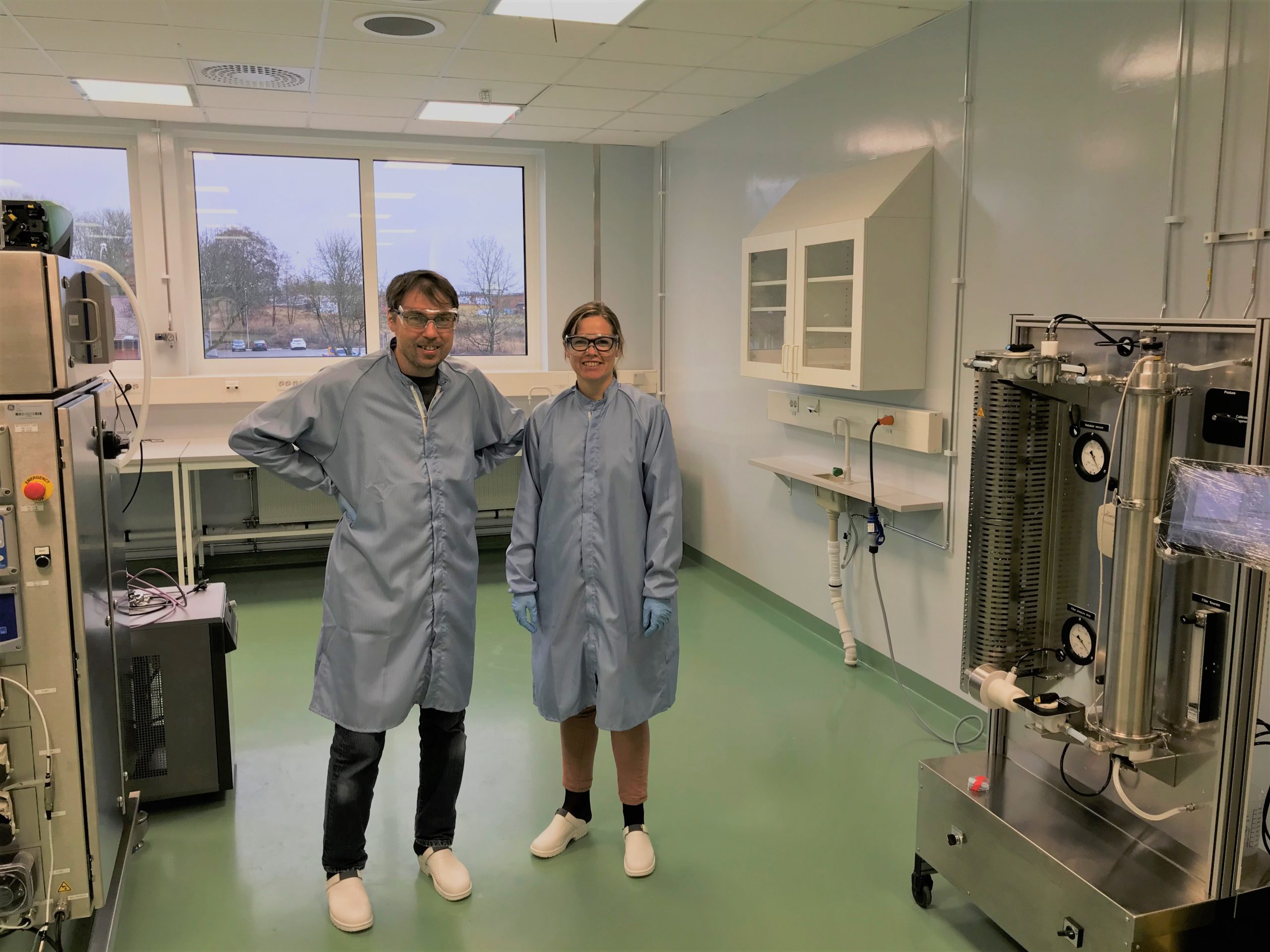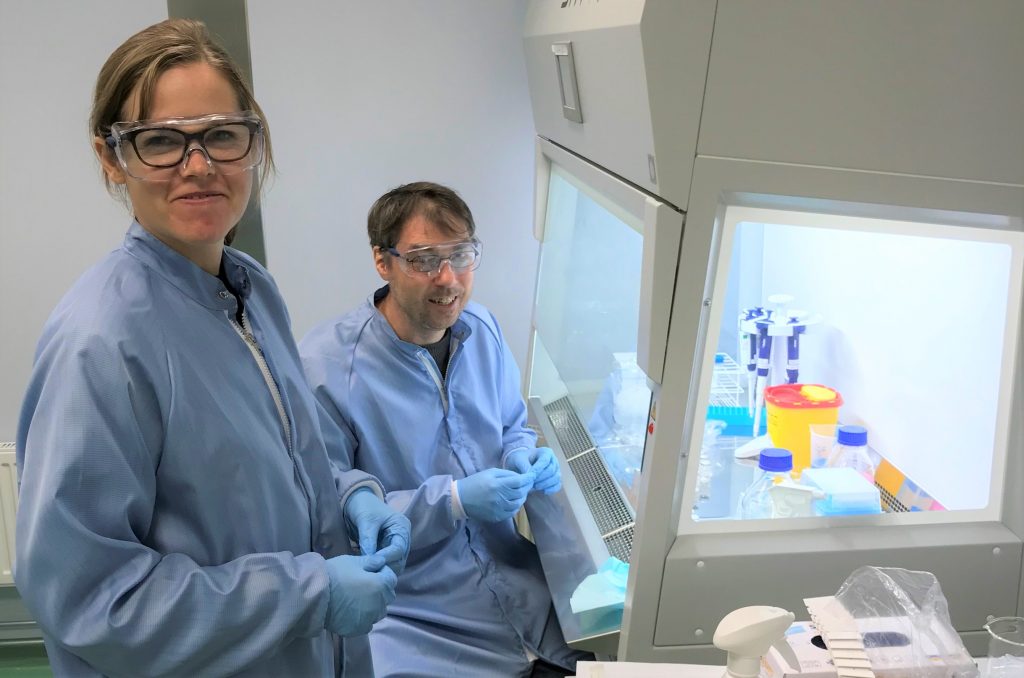One in five children does not have access to the most basic vaccines, and every year approximately 1.5 million people die from diseases that could be prevented with the help of vaccines. A major reason for this situation is the difficulty in getting vaccines to those who need them most: It is incredibly difficult to set up the cold chain from the factory to the children, who are most in need and live the farthest distance away. Ziccum, a company based in Lund, Sweden, is currently working at the Testa Center and has high hopes for its new way of preparing vaccines and biological drugs in the form of temperature-stable powders.
Ziccum is developing new formulations of vaccines, as well as other biological drugs. LaminarPace is their patented technology that develops dry formulations of products that are currently in liquid form only.
“Transporting powder is considerably easier and more cost-effective. The powder remains stable at 40 degrees for several weeks and does not require a cold chain, which is extremely important in warm countries such as those in Africa,” says Louise Egeblad, project manager at Ziccum.

Together with a colleague, Louise is using the Biosafety Level 2 (BSL2) Laboratory at the Testa Center.
“Everything is possible here. It is a flexible, well-equipped lab that makes it easy for us to work with viruses when we need a BSL2 lab,” says Fabrice Rose, the company’s newly hired formulation expert.
“It is a gentle drying done at room temperature and it is good for vaccines. We are experts with the machine, but method development is still underway to optimize the drying process, and it has been extremely instructive to come here to the Testa Center,” says Louise.
According to Louise, the next step is to develop a large-scale system for production in GMP environments and to scale it up for larger volumes.

Louise also explains that vaccines are stable in a different way and can be stored for longer periods of time when they are in the form of powder. The powder form does not take up as much space, which is an advantage if you have to store vaccines prior to an outbreak. In theory, any powder that is manufactured can be used, and therefore you do not have to throw away materials that don’t meet the criteria, such as after a broken cold-chain transport. WHO has estimated that about half of all vaccines are destroyed during transport and handling, which is an enormous waste of resources and money. Other advantages of the powder formulations include being able to develop new inhalation routes, such as nasal vaccines—something Ziccum is also looking into.
”We hope that, within a year, we will have a commercial contract with a large vaccine manufacturer and another new patent application for a temperature-stable formulation,” concludes Louise.



